A GUY CALLED GERALD
home
News
New Reviews
Reviews Archive
Interview Archive
Hall Of Fame
Links
Contact

- The UK is full of surveillance cameras now (150,000 cameras in 220 closed circuit systems) and I was watching the Discovery channel the other day about spy satellites. They can read the newspaper over your shoulder! So if they're admitting that, what will we find out about today, twenty years later? There's all sorts really and basically it's 'black secret technology'."
Gerald's next album Aquarius Rising (now to be called Essence) will be going further into these themes, fighting the fascistic technocracy with the good vibes of tunes like "Finley's Rainbow". The new tracks he played at the Tricky show feature harder basslines, but retain his distinctive scattered percussion and hybrid synth sounds. He promises the finished album will be "a balance of being really hard and nicely melodic" and will feature the vocal help of Deee-Lite's Lady Miss Kier, Lamb's Louise Rhodes and his brother David (who sang "Life Unfolds His Mysteries" on Black Secret Technology).
"Aquarius Rising is part of a build for me preparing myself for the new century. We're coming to an Age when things will be a lot more mellowed out, more free and creative. Art will have a lot more value than just a financial thing."
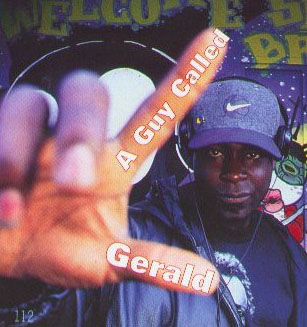
Gerald Simpson has humbly avoided the limelight even while providing key tracks in the development of two music movements - techno and jungle. Labelling himself simply A Guy Called Gerald, in 1989 he was the first British techno producer to be signed to a major label. Three years later his hardcore track "28 Gun Bad Boy" inspired the original junglists to begin their conquest of the dancefloor.
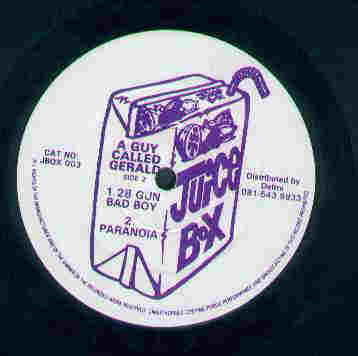
Ever an innovator, Gerald is thoroughly immersed in the ethics of "taking something where it's never been before". But being the first into new territory is often an unrewarding trip. He now feels his first hit "Voodoo Ray" is cursed because of all the legal hassles it incurred. When the funky techno track - which featured distinctive female vocals hooks and samples of Dr Who's mechanical enemies, the Daleks - crashed the top 20 in 1989 he was working in a Manchester burger bar, having signed away his royalties for a flat fee!
"I've got nothing to do with that track" he said when visiting Toronto while DJ'ing on Tricky's tour in 1997. "I own the copyright now, but it's like my bastard child."
If his hassles in the early 90's weren't enough, when he recently made plans to reissue the track on CD the original singer refused to be involved. You'll now find the new remixes by people like Alex Reece and Francois Kervorkian released as "The Curse Of Voodoo Ray" under the name of alternate vocalist Lisa May!
"For me personally it's a curse. I just keep away from it. If I played it here tonight something would fall on me, or I'd get hit by a truck! (laughs)"
Being the first techno artist on a major label wasn't a stroke of luck either. The contract just slowed down his pace of recording, while the marketing department didn't know what to do with a one-man band who didn't rock!
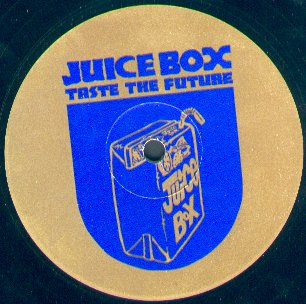
"They didn't know how to treat me or what you had to do to sell it, so I never really got along with them. While I was recording in big studios my friends were at home in their bedroom doing tracks and putting them out on acetates, starting up their own labels. I felt like I had made the wrong decision, so I got out of the deal and started my own label, Juice Box."
at the BBC 1988
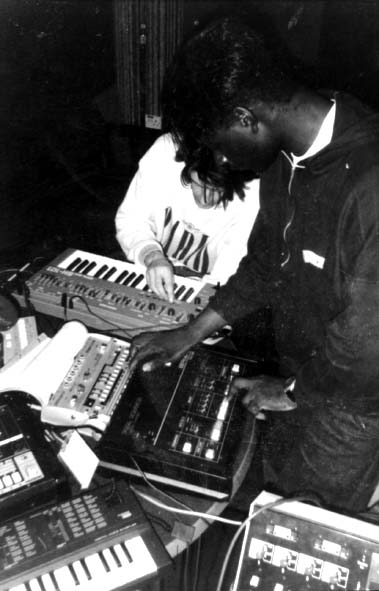
His legal problems started after he formed 808 State with a quartet of fellow Mancunians. Gerald wrote the basis of their hit "Pacific State", which they released without paying him. His response was a track that got him into the kind of breakbeats borrowed from funky drummers and spliced into their underground hardcore music.
"I did a track that was a piss-take of "Pacific State", called "Spesiphic Hate" (heard at MP3.com) and I remember putting breaks on that because I knew that they wouldn't like it. (laughs) One of the things 808 State swore that they would never do was use breaks. They weren't going to give me my share of "Pacific State" at the time, so I thought I'd re-produce it, put a break over top of it and cut it up. The aggressive sound of hardcore techno got me into it. It was like two years of frustration let loose really."
Since 1992 Gerald has become a singularity in the jungle scene - an acknowledged influence, but one whose output is separate from the scenes around the dark or jazz outgrowths from the original hardcore music. His several dozen singles are not conformist enough to be played out, but you know they are being listened to. For instance 1994's "Nazinji - Zaka"'s African-inspired percussion existed far left-field of that year's jungle-dub hits. The track's angular juxtapositions of rhythms weren't followed up until fusionist experimenters like Luke Vibert (Plug) got into the breakbeat action.
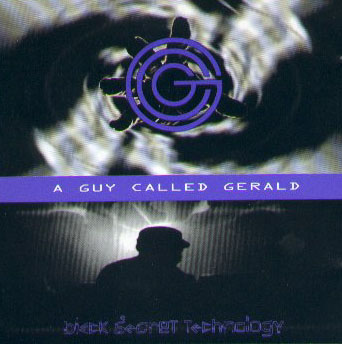
Gerald's masterpiece is his 3rd album Black Secret Technology, which in March of 1995 was one of only a handful of artist albums in the young style. The remake of "Voodoo Ray", "Voodoo Rage" featured the junglist innovation of computer-elongated vocals. Like William Burrough's use of Brion Gysin's 'cut-up', the "time-stretched" voice subverts the language of Control, becoming dark jungle's psychedelic signifier of urban paranoia in the face of the growing UK police state.
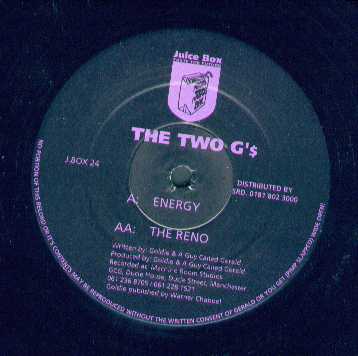
Gerald tempers this dark vibe with a dreamy mysticism born of the Aquarian beliefs found in his "21st Century Soul music". For him the political and personal are two sides of the same coin that struggles with questions of "Survival" before paying off in an age of freedom.
"The mysticism and the paranoia is all part of the same thing. I'm reading books like Behold The Pale Horse, which spells out a lot of things that have happened. In the UK there is this Secrecy Act which classifies new technologies for twenty years. Imagine in twenty years the things that are happening now will be coming out, and we'll be going like "fuck wow!"
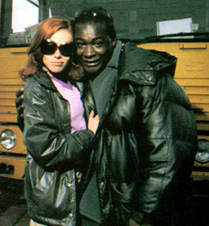
Warp's 10th Anniversary